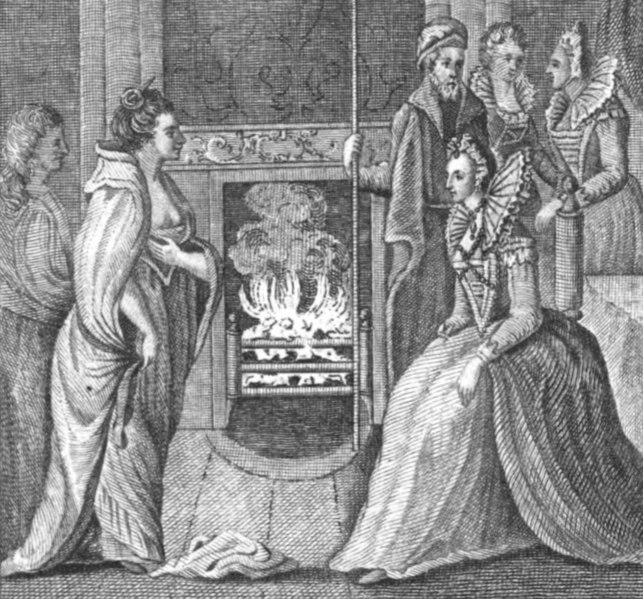March is Irish American Heritage Month as well as Women’s History Month. While history has no shortage of remarkable Irish women, one stands out above the rest. Her name was Grace O’Malley, and she was Ireland’s pirate queen.
Gráinne Ní Mháille, known as Grace O’Malley in English, was born on Clare Island in Ireland’s Clew Bay in 1530. Her father was the O’Malley Clan’s elected ruler. She took to the seas from an early age, although sailing was considered a man’s profession.
At 16, O’Malley married Donald O’Flaherty, and the couple had four children together. O’Flaherty was expected to become the next clan leader, as it was traditional in Irish politics for clans to strengthen their alliances through marriage. However, he died in battle and she chose to return home to Clare Island with her children.
O’Malley was a 28-year-old widow and mother of four when her father passed away. Usually, clan leaders were men, but she was elected as her father’s successor. She led the O’Malleys in countless raids against the ships that sailed through Clew Bay, citing her right as the ruler of the land to exact taxes from those who sailed through her territory. Eventually, she used this claim of royalty as the reason why she refused to kneel before Queen Elizabeth in the English court. One queen does not kneel to another.
Prior to Queen Elizabeth’s reign, England considered Ireland as an undeveloped wasteland, unworthy of the investment in men and resources it would take to conquer it. Elizabeth ascended the throne, and the rivalry between Catholic Span and Protestant England intensified as both countries sought to claim as much land as possible in the New World.
Elizabeth’s advisors worried that Ireland and Spain would form an alliance based on their shared Catholic faith and that Spain would launch an attack from Irish soil, which, in some places, was only 15 miles from the English coast.
For this reason, Elizabeth ordered her administration to take steps to bring Ireland under English control. She appointed Sir Richard Bingham as the Governor of Connacht, ordering him to subdue any rebellions that arose.

Bingham described O’Malley in one of his letters as the “mother of all Irish rebellions” and said that no one had more to do with fermenting Irish discontent with England than she did. Although he meant the description pejoratively, it now reads like high praise.
O’Malley’s place in Irish society and the Elizabethan world was a unique one. She was a woman, a leader, and commanded a private navy that rivaled England’s in size. She successfully preyed on English ships in Clew Bay for years, using her knowledge of the many small islands to her advantage. She strongly believed that an English monarch had no right to rule Ireland.
O’Malley recruited mercenary soldiers from Scotland and transported them on her ships. She tried to unite the clans under the common purpose of defending their homeland. She refused to give up the fight, even after Bingham captured and killed her oldest son. They remained bitter enemies until the end of her days.
In 1593, O’Malley sailed up the river Thames for a private audience with Queen Elizabeth. Their conversation wasn’t written down and its contents fueled imaginations for the last four centuries.
Elizabeth agreed to several of O’Malley’s requests. She removed Bingham from his post as Governor, though he was later reinstated. She agreed to have several of O’Malley’s relatives, including her son and brother, freed from prison. She also granted O’Malley the right to “maintain herself by land and sea,” which was a reference to her piracy. Many who fought for freedom against English rule died bloody deaths, but Grace O’Malley died a free woman at age of 73.
Her descendants were integrated into the English political system. As members of the Irish aristocracy, they influenced government and policy for generations after her death. The places where she lived and fought attract thousands of tourists each year. Her legacy continues to inspire women and Irish people everywhere through songs and stories. She’s been the subject of numerous fiction and nonfiction books, as well as a documentary and a Broadway musical. There is no more fitting person to remember in the month that honors both the Irish and women than Grace O’Malley.
If anyone is interested in reading more about Grace’s extraordinary life, I wrote a children’s book about her. It’s available on Amazon.
MacKenzie Tastan
Reporter

